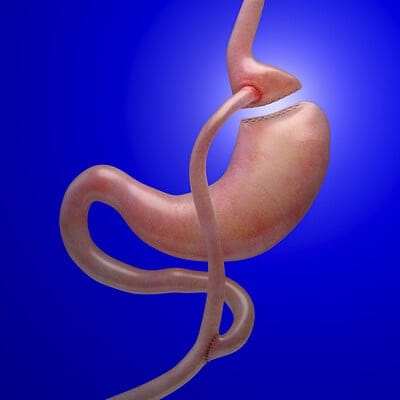The obesity epidemic affects millions globally. Long hours, inactivity, and junk food are major causes. Sleep deprivation is another issue. High blood pressure, diabetes, and cardiovascular disease are risks. This restricts motion and causes discomfort. Severely obese people cannot lose weight with diet and exercise. Only bariatric surgery can remedy this. No other option.
What is bariatric surgery?
Extremely obese patients get this surgery. Many treatments fall into this group. These therapies remove stomach tissue or block food flow to lower stomach capacity. Depending on the situation, the first gut segment may be removed. This reduces appetite and ensures early meal contentment, which leads to weight loss and improved or remitted illnesses.
This is the only cosmetic device that can treat extreme obesity and cause long-term weight loss, especially when monitored.
Benefits of Bariatric Surgery:
Weight loss after bariatric surgery improves health and reduces the risk of obesity-related disorders like diabetes and cardiovascular disease.
- The substantial body shape and measurement changes improved one’s attractiveness and self-confidence.
- These exercises’ increased mobility and consistency have allowed overweight people to participate in activities they previously avoided owing to strategic distance.
- Reducing obesity-related medicine demand improves quality of life and lowers healthcare expenses.
- Body image and self-esteem boost mental health and reduce pain.
- People live more vivid and satisfying lives when they are more productive and vital.
- Maintaining a healthy weight improves health and lifespan.
Candidates:
Due to its significant body intervention, surgery is indicated for patients with BMIs larger than 35-40% kg/m2. In addition to obesity, the patient is developing chronic diseases. The therapy failed the patient, which is disappointing.
Like any surgery, the operation is not suggested in the following situations:
- Mental disorder
- Patient drug or alcohol addiction
- Low BMI
- We cover pregnancy and breastfeeding.
- Growing consumption problems
How to Prepare for Bariatric Surgery?
The following are typical pre-operative assessment and preparation procedures:
- Discuss your medical history with your doctor.
- Blood tests and other diagnostics may be part of the initial exam.
- Avoid smoking and drinking.
- Avoid blood-thinning drugs.
- Get enough water and nutrients.
The Procedure:
One of the most common bariatric surgeries, bypass stomach surgery, has the following steps:
- After general anesthesia, the operation will begin.
- The surgeon will make a few minor abdominal incisions before moving on to the intestines and stomach. Sometimes a large incision is needed.
- Surgeons use staples during surgery. Thus, food intake and hunger hormones decrease.
- In step four, the surgeon attaches the small intestine to the stomach base.
- The surgeon will now join a little section of the intestine to the stomach pouch.
- The surgeon will connect the remaining small intestine to the new relationship point before proceeding to the sixth stage.
- Afterward, the orthopedic doctor would staple or stitch the wounds and provide a dressing.
Recovery after surgery:
Typical post-operative care and recovery items include:
- Monitoring for bleeding and infection would be helpful.
- accordance with your doctor’s diet advice.
- Patients should start light movement right after surgery to speed healing and reduce blood clots. Such activity includes walking.
- Your surgeon will schedule monthly follow-up appointments to assess your progress and address concerns.
- Contact your surgeon immediately if you have a significant reaction.
Results:
Within six months, bariatric surgery may yield results. Most patients lose weight quickly for two years after surgery. They observe the patient 14 years after surgery. You can shed 50% of your weight in six months. The surgery reduces the risk of cancer, diabetes, depression, back discomfort, stomach ulcers, and high blood pressure.
Which Bariatric Surgery is Riskiest?
The duodenal switch with biliopancreatic diversion (BPD/DS) is usually the riskiest surgery. The digestive tract changes significantly throughout this surgery, which removes the stomach and bypasses a large part of the small intestine. However, the risk of complications is much higher than with gastric bypass or gastric sleeve, which can significantly reduce body weight. Weakness, vitamin deficiency, dumping syndrome, and digestive issues might cause these issues.
Bariatric Surgery Cost in Islamabad:
Bariatric surgery cost in Islamabad starts from PKR 400,000 to PKR 800,000, depending on several criteria. As with other surgeries, surgery costs depend on several factors. The procedure and the healthcare professional’s skill can affect cost. The location of the facility and other services suggested by your surgeon also affect pricing. Coverage benefits and price options may also affect therapy costs.
Request a consultation now!
Consult a professional before undergoing bariatric surgery for weight loss. In this instance, you can consult our Enfield Royal Clinics PK specialist in Islamabad to explore specific treatment options that meet your fitness goals. Our experienced bariatric surgeons will guide you through the operation. Furthermore, it will include communicating thorough analyses and ideas to help you make informed decisions. We’re here to help you live healthier and happier by offering compassionate treatment and using our knowledge.










Leave a Reply